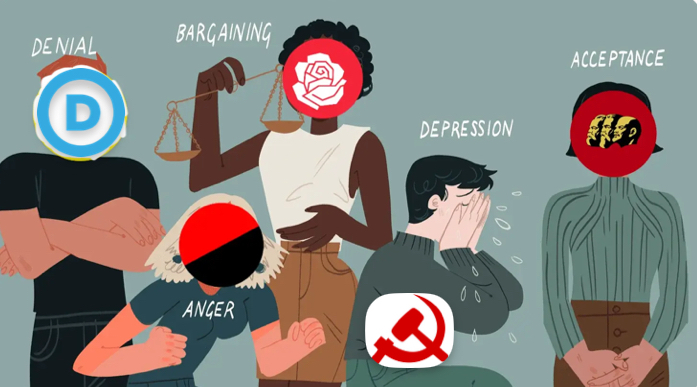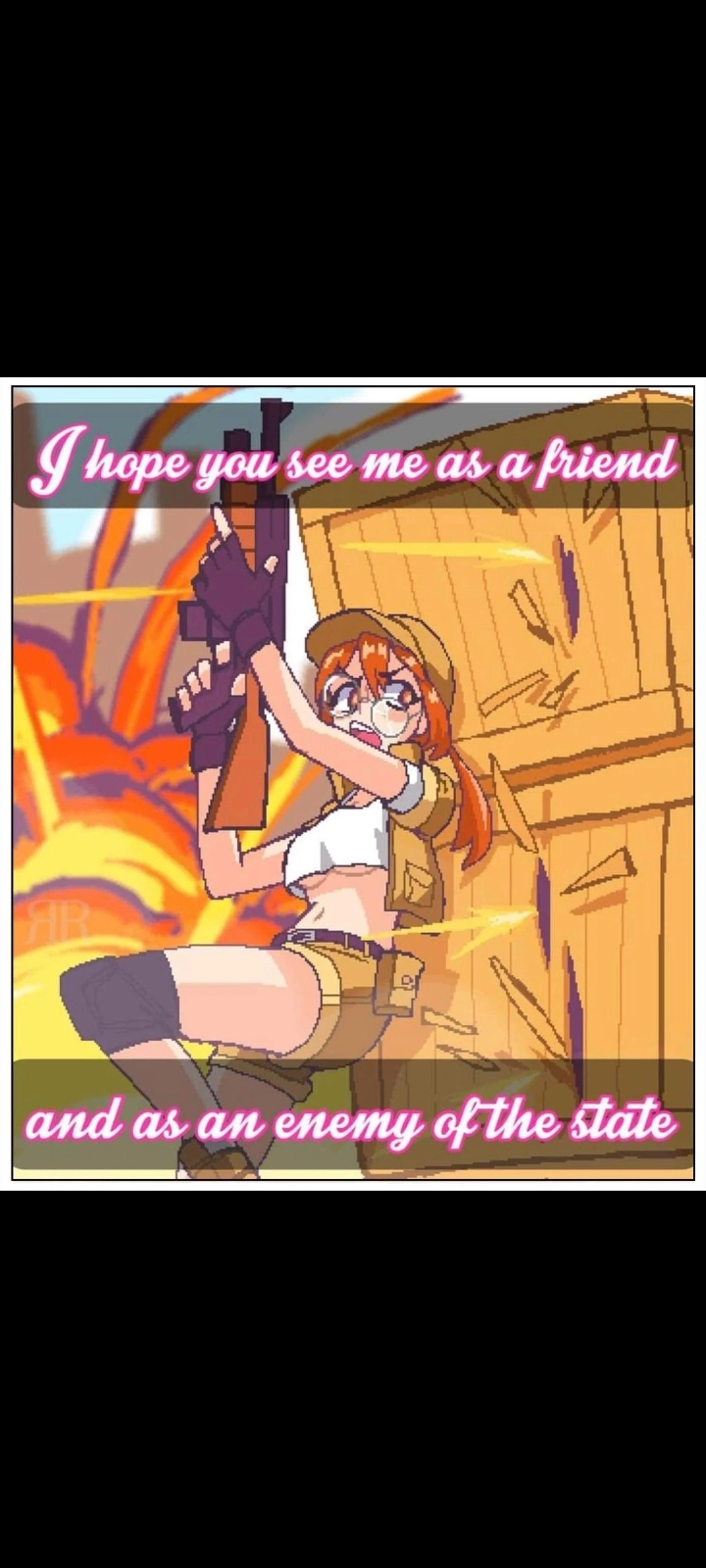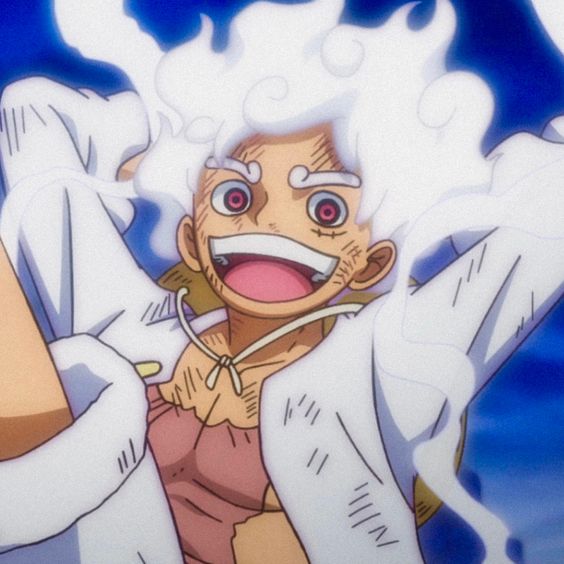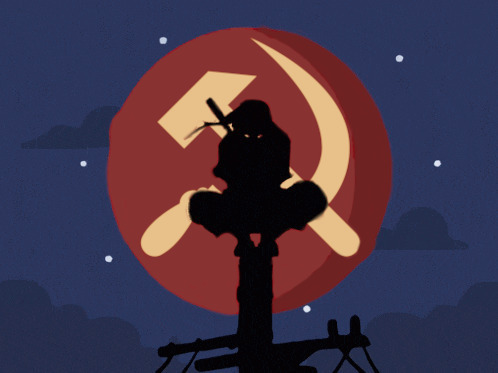Good meme. Maybe Denial should be the Democrat party logo?
lol yes!

😄
How is communism depression?
It’s the Shining Path’s hammer and sickle for Maoism. I considered using Gonzalo’s face, but it looked silly next to ideology logos (or whatever you call them).
I need to know what party is depression, this is important information
Maoists :)
I may have skipped some steps
I went through bargaining before anger, but now I’m doing both acceptance and depression at the same time. 😎
I had the transitionary step known as confusion combined with the sudden knowledge of how absurd our society is. The depression hasnt set in yet
I’m still angry.
When do you stop being angry
Death to America.
Hm idk I’m still just as mad even having accepted it lol
The difference is that before you become a scientific socialist your anger is a hot rage, impotent, unharnessed and confused, but when you actually develop a clear understanding of the world and what needs to be done you see that there is hope and little by little you learn to have revolutionary optimism…and while your anger at the injustices of the world never goes away it becomes a constant and calmly simmering driving force that unceasingly motivates you to struggle and make the world a better place, if not for yourself then for future generations. So i say embrace that righteous anger and do your very best to turn it toward something positive, turn it into revolutionary fervor and let it compel you to act, but always act thoughtfully not impulsively.
Oh absolutely. In the words of the great James Baldwin, “to be Black in America is to be constantly in a rage”. Words that have been imprinted on my brain ever since I heard it.
Beautifully well put comrade!
I skipped Denial went straight into Anger and then Acceptance.
Pretty efficient grief process but still angry.
so far im just the first two guys haven’t gotten to the third yet (the first two guys in Acceptance)
What’s depression? Anprim? Apolitical? Some sort of reactionary? MLM? Actually, Maoist is probably best, because it’s between anarchism and ml, and how can you have any hope when you see china as the enemy too?
Maoists would definitely be a good fit for depression. Like they’re almost there, and just have to let go of being ultras.
Anarcho-Maoism

Depression is simply doomerism, it should be a wojak doomer
Apolitical
I don’t think anyone who’s ever been an anarchist is going apolitical again lol
Posadism.
Any ultra ideology, since there’s no hope for success.
I keep rotating through Anger, Depression, and Acceptance, but I probably spend most of my time in Anger. Syndicalism counts as Anger here, right?
I’m sort of the same but switch anger and acceptance.
I think Syndicalism is mostly an anarchy school of thought but haven’t read too much on it outside of comparing it to council communism.
So MLs accepted the status quo rather than trying to change it?
The acceptance is to study ML theory and accept that there are no shortcuts.
I totally get your perspective too: you could swap acceptance and denial. Capitalists accept the justification of the status quo while MLs deny it.
In the context of grieve I think Yogthos’ perspective is more fitting: “Denial” is the denial that anything is wrong with the system and “Acceptance” of both facts, that the system is fundamentally flawed and that a pursuit of any idealistic one doesn’t bear fruit is the necessary precursor for conducting a sober analysis
That’s not how the stages of grief work. The last step is for example that you accept your cancer and see that there ain’t nothing you can do about it. When the doctor says you’re done, there is no cherry pit pillow that can help you.
That is incorrect. Stages of grief do not only apply to terminal conditions where acceptance is fatalistic.
Say you suffer the loss of a loved one. Accepting that they are gone holds within itself the key to continue your live. Acceptance, plain and simple, is a necessity to deal with reality.
Similarly the acceptance that the capitalist system is inherently “broken” enables us to figure out how to deal with that reality, how to overcome its contradictions.
Denying that many of humanities problems are rooted in capitalism does not. The comparison is valid
















